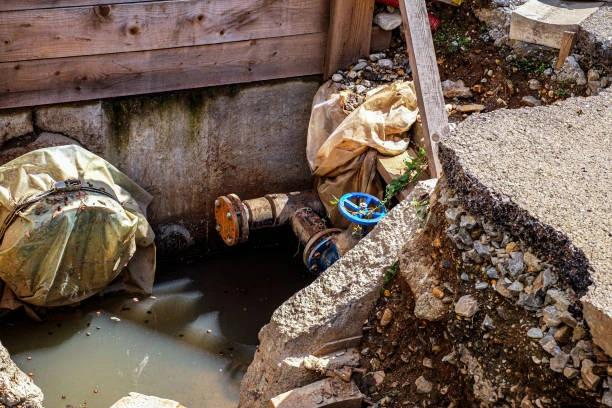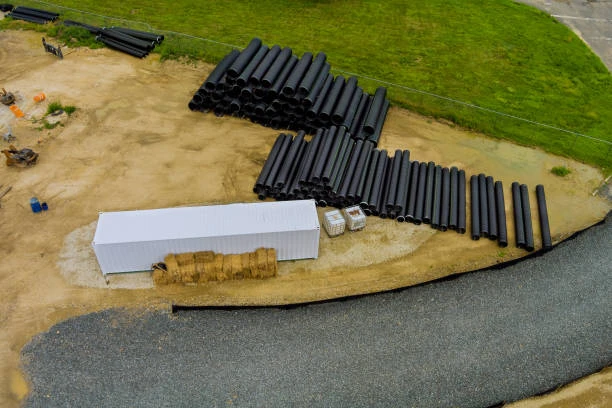Water Pipe In a sudden and unexpected incident, a burst water pipe at a nursing home in Rice Lake has led to the evacuation of its residents to a nearby facility in Spooner. This unfortunate event highlights the importance of proper plumbing maintenance and preparedness in nursing homes, where the safety and well-being of residents are paramount. In this article, we will explore the details surrounding the incident, the implications for the residents, and the broader significance of maintaining plumbing systems in care facilities.
Understanding the Water Pipe Incident
What Happened?
On a typical day, residents of the nursing home in Rice Lake were going about their routines when a water pipe burst, causing significant flooding in the facility. The sudden influx of water created an unsafe environment, prompting immediate action from the staff and local emergency services.
Immediate Water Pipe Response
Upon discovering the burst pipe, the nursing home staff quickly notified emergency services. Firefighters and maintenance crews arrived on the scene to assess the damage and begin the clean-up process. The safety of the residents was the top priority, leading to the decision to evacuate them to a nearby nursing home in Spooner.
Evacuation Process
The evacuation process was executed with care and efficiency. Staff members ensured that all residents were accounted for and transported safely to Spooner. Family members were notified, and arrangements were made to keep residents comfortable during the transition. The nursing home’s management worked closely with local authorities to ensure that the evacuation adhered to safety protocols.
The Impact on Water Pipe Residents
Emotional and Physical Well-being
For many residents, the sudden evacuation from their familiar surroundings was distressing. Staff members provided emotional support during the transition, helping residents adjust to their temporary accommodations in Spooner.
Continuity of Care
One of the primary concerns during such incidents is maintaining continuity of care. The nursing home in Spooner was prepared to receive the evacuated residents and had systems in place to ensure they received the necessary medical attention and support. Healthcare professionals coordinated with the staff from Rice Lake to ensure that medical records and care plans were transferred seamlessly.
Family Communication
Communication with families is vital during emergencies. The nursing home administration made efforts to keep families informed about the situation, the safety of their loved ones, and the steps being taken to ensure their care. This transparency helped alleviate some concerns that families may have had during the evacuation.
The Importance of Water Pipe Plumbing Maintenance
Preventing Future Incidents
The burst water pipe incident serves as a reminder of the importance of regular plumbing maintenance in nursing homes and other care facilities. Plumbing systems should be routinely inspected and maintained to prevent leaks, bursts, and other plumbing issues that can lead to emergencies.

Signs of Plumbing Issues
Care facilities should be vigilant for signs of plumbing problems, including:
- Water Stains: Discoloration on walls or ceilings can indicate leaks.
- Unusual Sounds: Noises such as dripping or gurgling can signal plumbing issues.
- Decreased Water Pressure: A sudden drop in water pressure may suggest a leak in the system.
- Mold Growth: The presence of mold can indicate excessive moisture due to plumbing problems.
Hiring Water Pipe Professional Services
Engaging professional plumbing services for regular inspections and maintenance can help identify potential issues before they become emergencies. Plumbers can assess the condition of pipes, fixtures, and drainage systems, ensuring they are in good working order.
Emergency Preparedness in Water Pipe Nursing Homes
Developing an Emergency Plan
Nursing homes must have comprehensive emergency plans in place to address various scenarios, including plumbing emergencies. These plans should outline procedures for evacuating residents, communicating with families, and coordinating with local emergency services.
Training Staff
Regular training for nursing home staff on emergency response procedures is essential. Staff should be familiar with the emergency plan, including how to safely evacuate residents and provide assistance during a crisis.
Collaboration with Local Authorities
Collaboration with local authorities, including fire departments and emergency medical services, can enhance a nursing home’s emergency preparedness. Regular drills and communication with these agencies can ensure a swift response during emergencies.
Community Support and Water Pipe Resources
Local Organizations
In the aftermath of the incident, local organizations and community members often rally to support those affected. Donations of supplies, food, and other resources can help ease the transition for evacuated residents as they settle into temporary accommodations.
Mental Health Support
Providing access to mental health support and counseling can help residents cope with the stress and anxiety resulting from the evacuation.
Family Involvement
Families play a crucial role in supporting their loved ones during emergencies. Encouraging family involvement in the care process can help residents feel more secure and connected during challenging times.
Conclusion
The burst water pipe incident at the Rice Lake nursing home serves as a stark reminder of the importance of plumbing maintenance and emergency preparedness in care facilities. While the evacuation of residents to Spooner was executed efficiently, the emotional and physical well-being of the residents remains a priority. By prioritizing regular plumbing inspections, developing comprehensive emergency plans, and fostering community support, nursing homes can better protect their residents and ensure their safety in the face of unexpected challenges.
FAQs
1. What caused the burst water pipe at the Rice Lake nursing home?
The specific cause of the burst water pipe is still under investigation, but common causes include aging infrastructure, freezing temperatures, or excessive water pressure.
2. How were residents evacuated during the incident?
Residents were evacuated safely by nursing home staff and local emergency services, ensuring that all individuals were accounted for and transported to a nearby facility.
3. What measures can nursing homes take to prevent plumbing emergencies?
Regular plumbing inspections, maintenance, and staff training on emergency procedures can help prevent plumbing emergencies and ensure a swift response if they occur.
4. How can families stay informed during emergencies at nursing homes?
Nursing home administrations should maintain open lines of communication with families, providing updates about their loved ones and the situation as it unfolds.
5. What support is available for residents after an evacuation?
Residents may receive emotional support, access to mental health services, and assistance from local organizations to help them settle into temporary accommodations and cope with the transition.


















